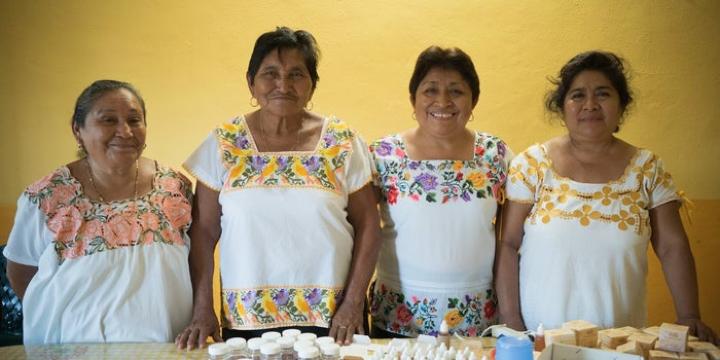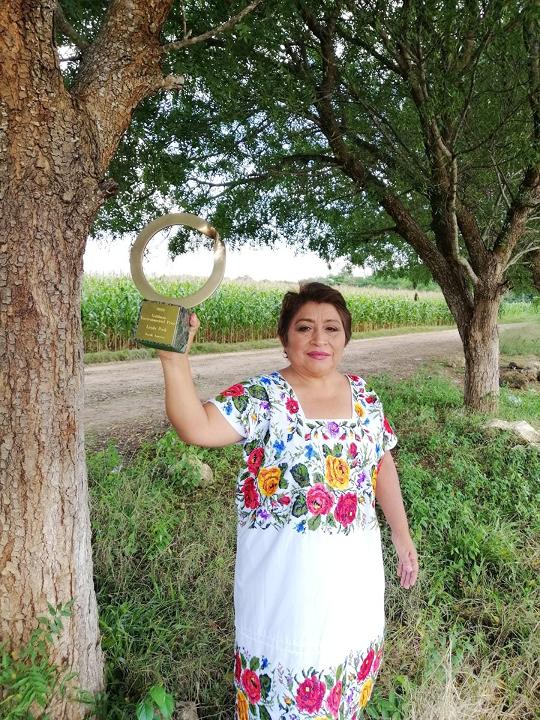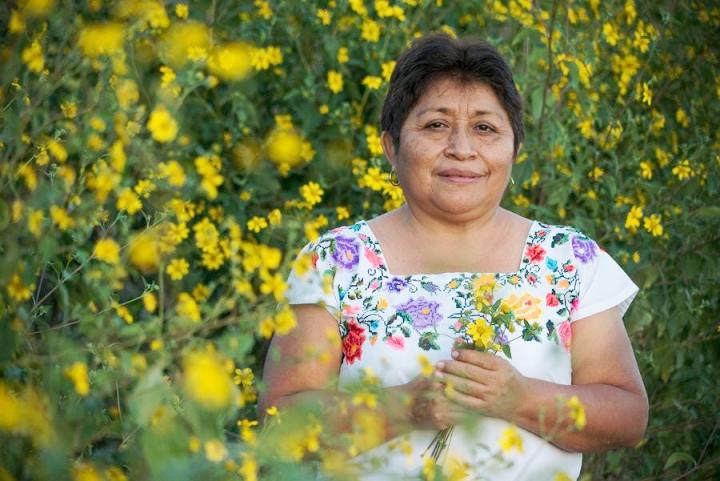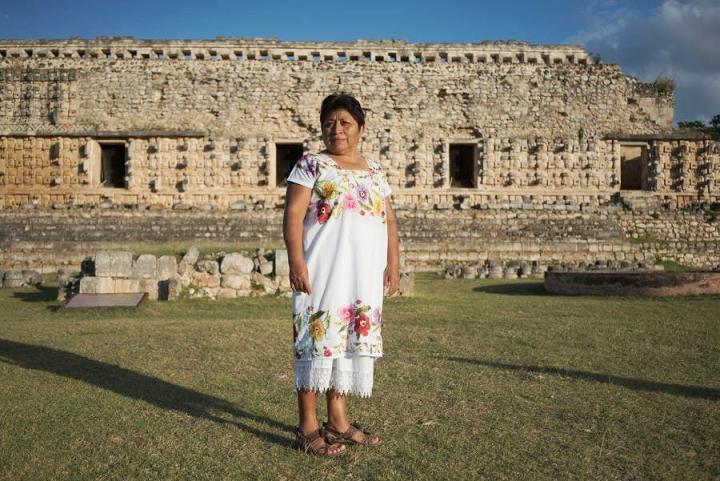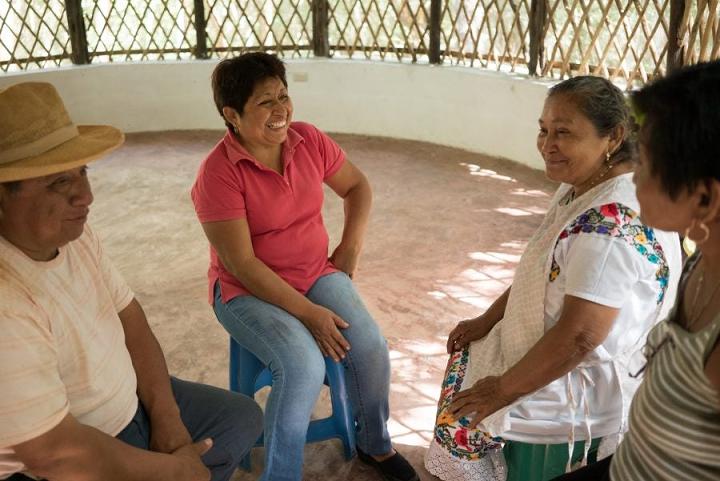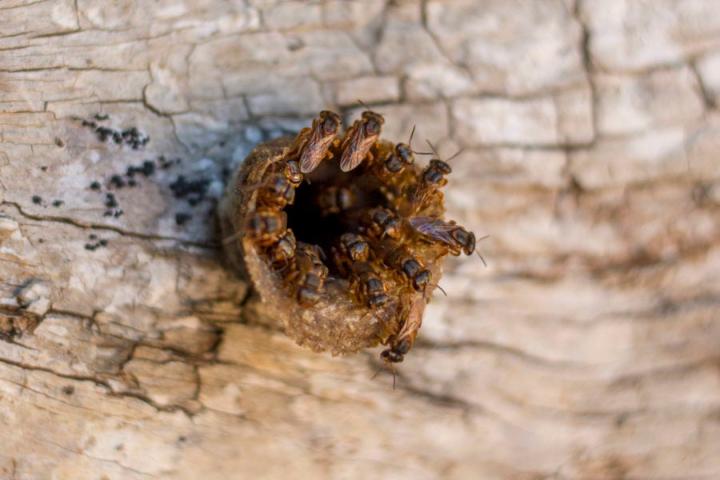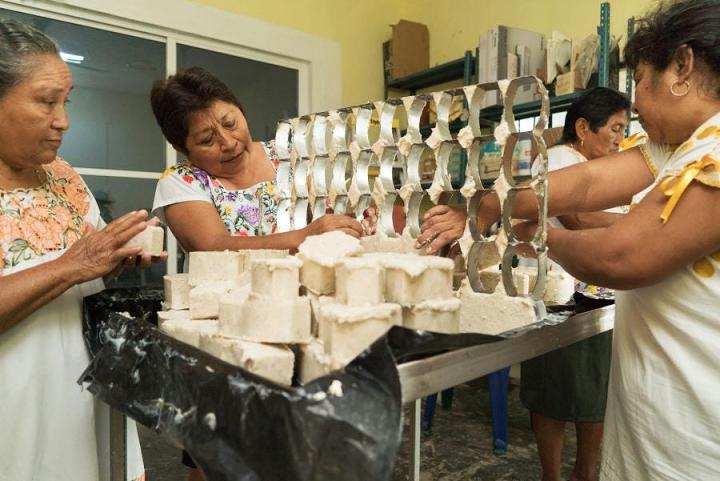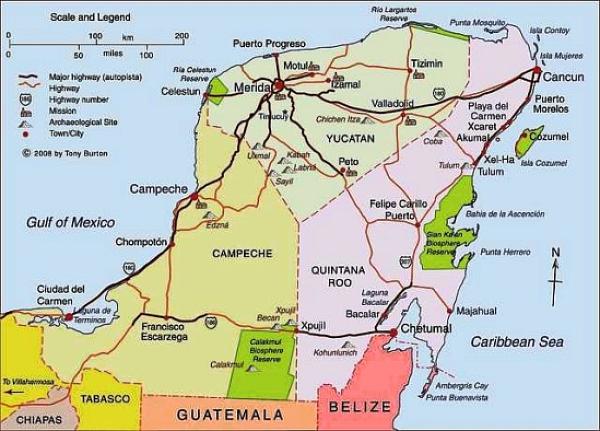 |
Canku Ota
|
 |
|
(Many Paths)
|
||
|
An Online Newsletter
Celebrating Native America
|
||
|
DECemBER 2020 - Volume
18 Number 12
|
||
|
|
||
|
Meet Leydy Pech,
the Mayan Woman Who Stopped Monsanto And Won The
'Nobel For The Environment' |
||
|
by México Desconocido
|
||
|
This Mayan woman
from Campeche is a beekeeper and defender of indigenous rights and
Melipon bees.
This article was translated from our Spanish edition using AI
technologies. Errors may exist due to this process. This story originally
appeared on México Desconocido Leydy Pech , an indigenous Mayan beekeeper, led a coalition that halted the planting of genetically modified soybeans by Monsanto in seven states across the country. For his defense of the environment and the autonomy of indigenous peoples and honey he won the "Nobel" for the environment: 2020 Goldman Prize Recipient North America.
Who is Leydy Pech? Mayan blood runs through the veins of Leydy Pech, 55, and her love for honey and the defense of her land is the engine of her days. He learned to take care of the land as an ancestral legacy and his posture of defense of the autonomy of native peoples has managed to stop projects that pollute the earth and kill bees. Of course, there are legal intricacies that are not fully clarified yet, so her work as an activist continues. In the statement where they report on the award, they state:
An interview with him in the framework of a documentary that was presented in recent months at the Ambulante independent film festival, gives an account of his work and his mission.
For these Mayan women, honey is much more than sustenance, it is identity. Some data can put this fact in perspective: Pollution from the planting of genetically modified soybeans In 2000 Monsanto began growing experimental plots of genetically modified (GM) soybeans in Mexico. In 2010 and 2011, the government elevated these projects to "pilot projects".
The transgenic soybeans used by Monsanto (now owned by Bayer) are known as "Roundup Ready," a reference to the plant's programmed genetic tolerance to high doses of the herbicide Roundup (also a Monsanto product). The main ingredient in Roundup is glyphosate, a probable carcinogen that is also linked to miscarriages and birth defects.
It soon became clear that transgenic crops were contaminating local honey in Campeche, threatening the food supply, environment, and livelihoods of Mayan communities.
The mobilization led by Pech In June 2012, Pech brought together beekeepers, NGOs and environmentalists in a coalition known as Sin Transgenicos (No GMOs). He led the group in filing a lawsuit against the Mexican government to stop the planting of transgenic soybeans. His case was based on the fact that neither the government nor Monsanto consulted the indigenous communities before approving the permits, in violation of the Mexican Constitution and Convention 169 of the International Labor Organization.
Pech reached out to academic institutions for help documenting the impacts of GM soy cultivation on honey, the environment, and people. The Autonomous University carried out a study of GM soy production in Campeche, where Monsanto had conducted a pilot project, confirming that GM soy pollen was present in the local honey supply. The UNAM and the UN Development Program also recorded the impacts of glyphosate, finding traces of the herbicide in Hopelchén's water supply and in the urine of city residents.
With these data, Pech and the Mayan collective began an outreach and education campaign for local communities and government officials about the negative impacts of transgenic soy production. They organized a series of workshops for activists and organizations to exchange information and research, launched petitions, and organized simultaneous protests at seven Mayan ceremonial centers in the Yucatán Peninsula, with approximately 2,000 participants. In November 2015, in response to the coalition's lawsuit, Mexico's Supreme Court unanimously ruled that the government must consult indigenous communities before planting transgenic soybeans. The ruling effectively canceled Monsanto's permits and prohibited the planting of transgenic soy in the Campeche and Yucatan. Koolel-Kaab "women who work with bees" is a group of ladies from the town of Ich Ek, who since 1995 are dedicated to the care and conservation of the melipona bee or native Mayan bee. They are currently recognized for their trajectory in defense of the territory and their fight against transgenic crops. Its products are derived from beekeeping.
And, in September 2017, thanks to Pech's organization, the Mexican Food and Agricultural Service revoked Monsanto's permission to grow genetically modified soybeans in seven states. This decision marks the first time that the Mexican government has taken official measures to protect communities and the environment from GM crops. What Leydy Pech and her community gained The Supreme Court of Mexico ruled that the government violated the constitutional rights of the Mayans by not consulting them for the planting of soybeans, which is why in September 2017 it suspended the planting of genetically modified soybeans by Monsanto in the seven states. However, there is illegal planting and the case is not completely won in the legal field, so support for the Mayan communities must be full and forceful so that their sovereignty and autonomy is respected by all levels of government and all Mexicans. |
||||||||||||||
|
|
|
||
|
|
||
| Canku Ota is a free Newsletter celebrating Native America, its traditions and accomplishments . We do not provide subscriber or visitor names to anyone. Some articles presented in Canku Ota may contain copyright material. We have received appropriate permissions for republishing any articles. Material appearing here is distributed without profit or monetary gain to those who have expressed an interest. This is in accordance with Title 17 U.S.C. Section 107. | ||
|
Canku Ota is a copyright ©
2000 - 2020 of Vicki Williams Barry and Paul Barry.
|
||
 |
 |
|
|
The "Canku
Ota - A Newsletter Celebrating Native America" web site and
its design is the
|
||
|
Copyright ©
1999 - 2020 of Paul C. Barry.
|
||
|
All Rights Reserved.
|
||
